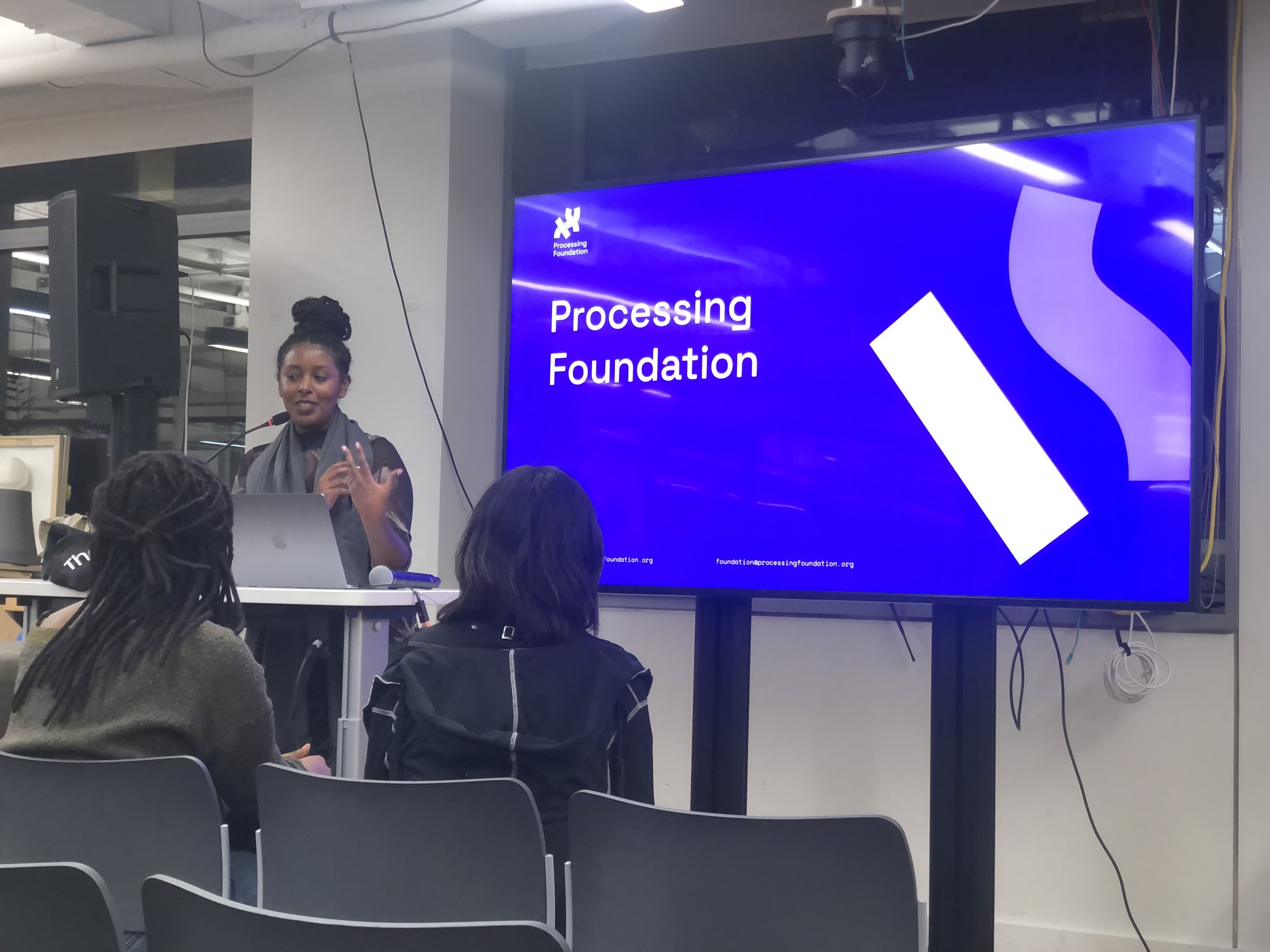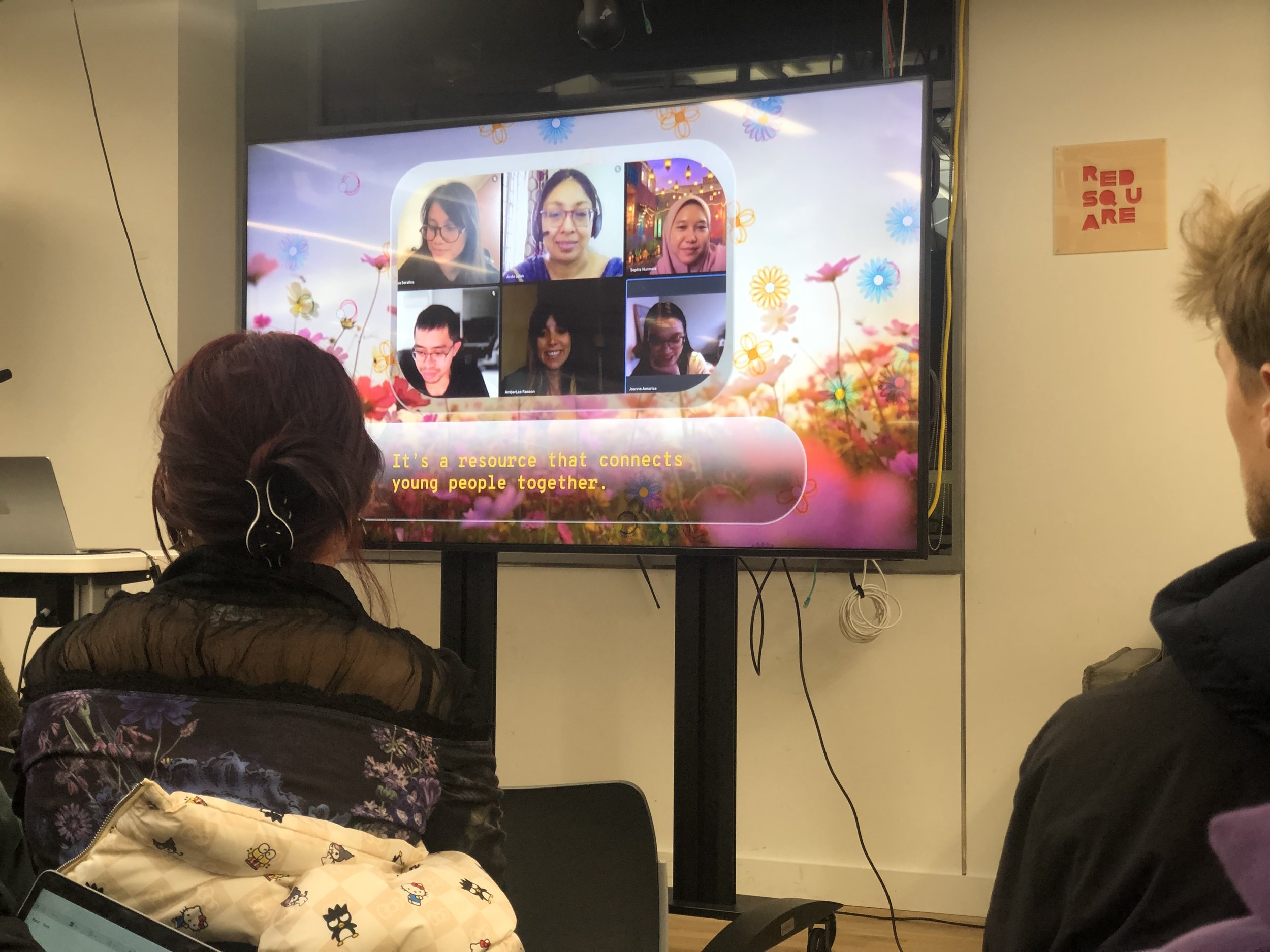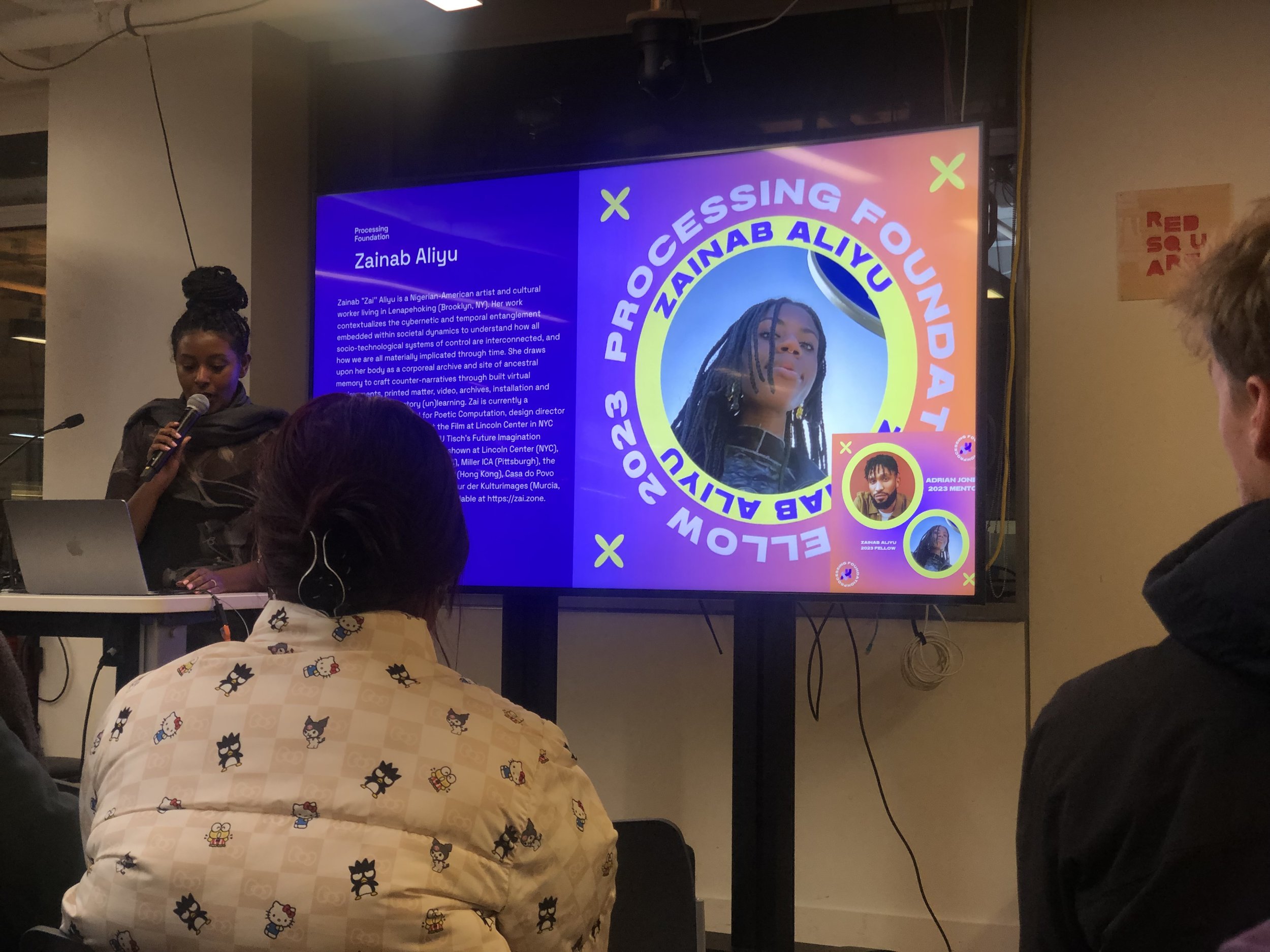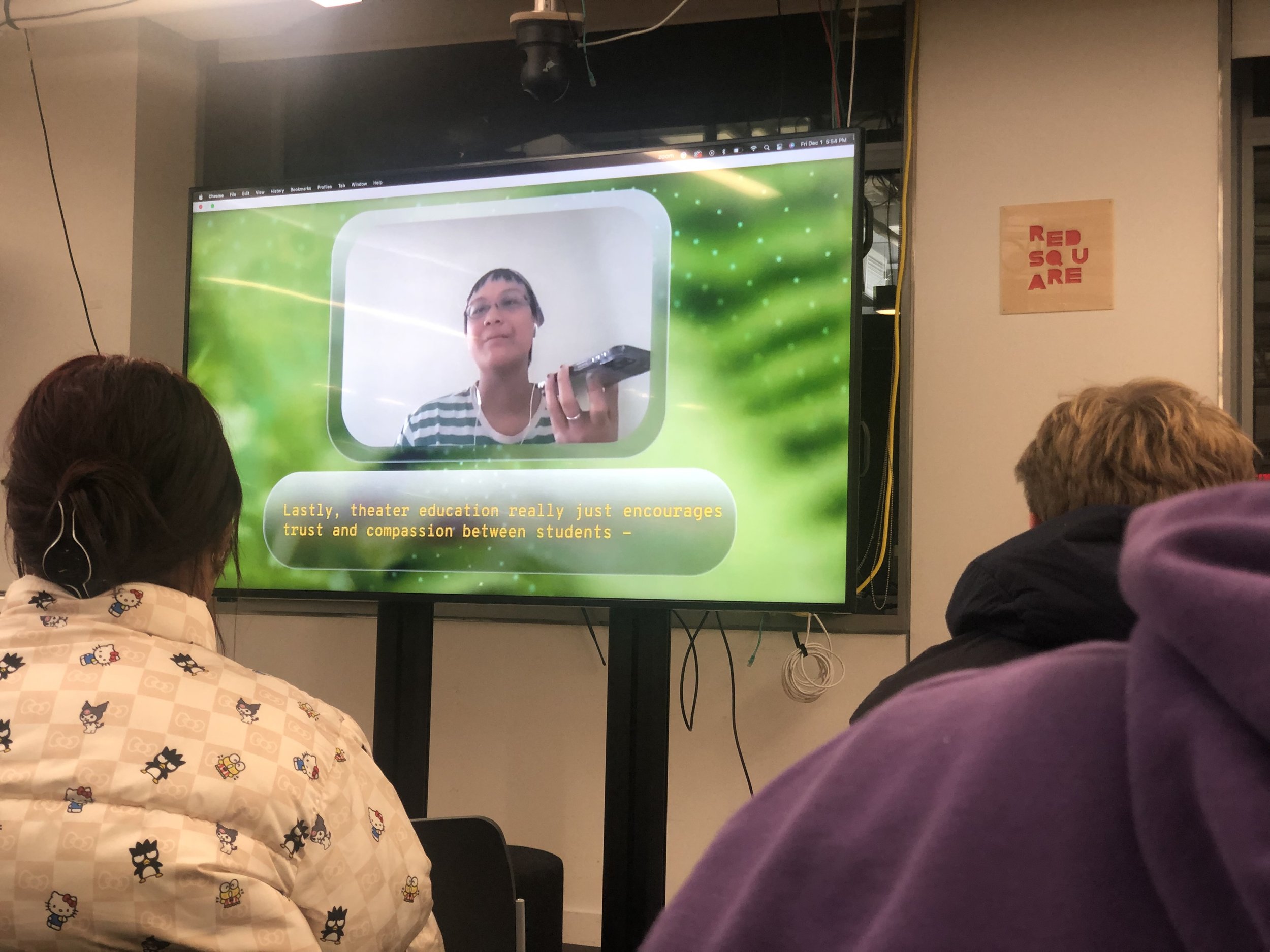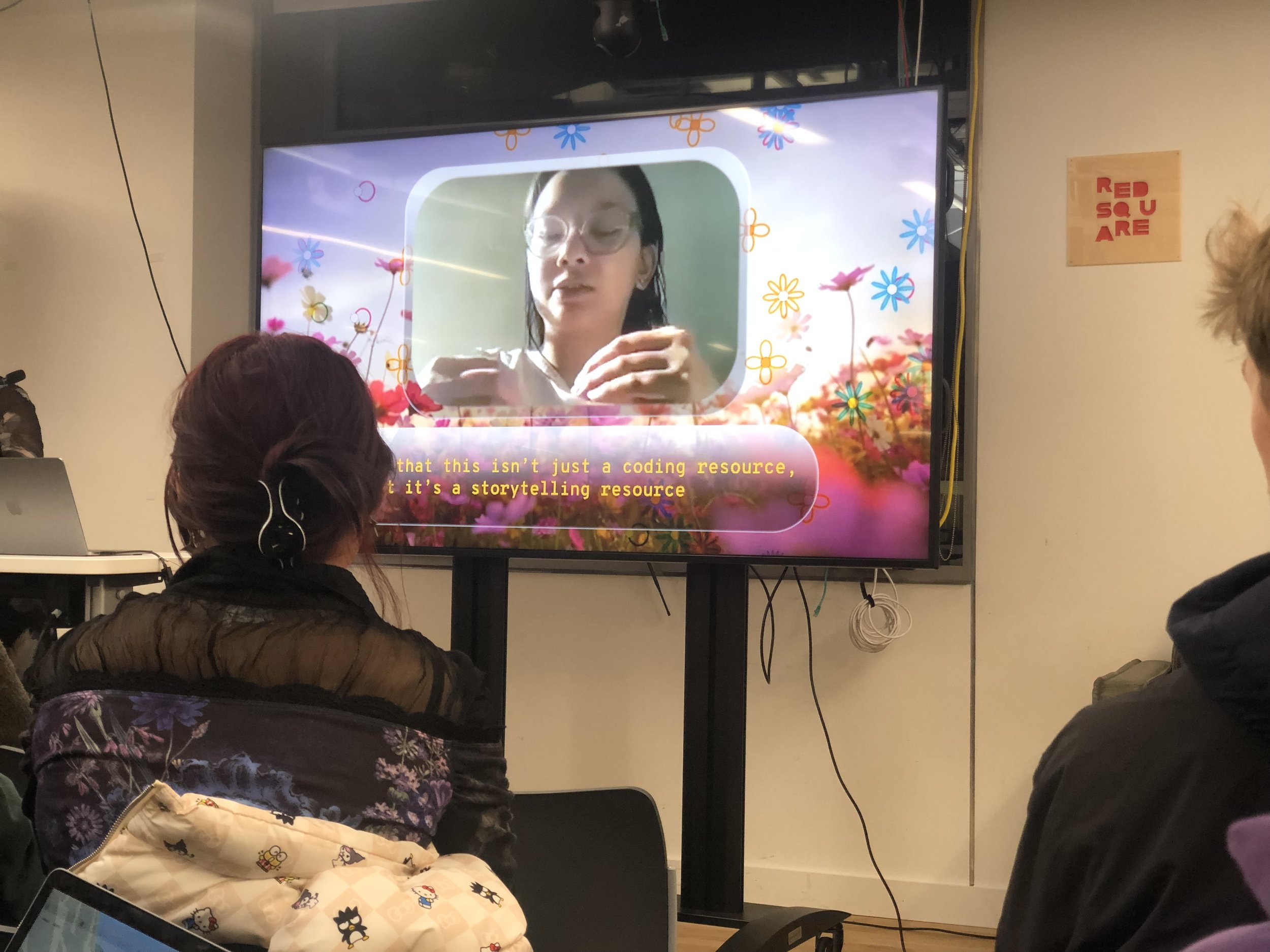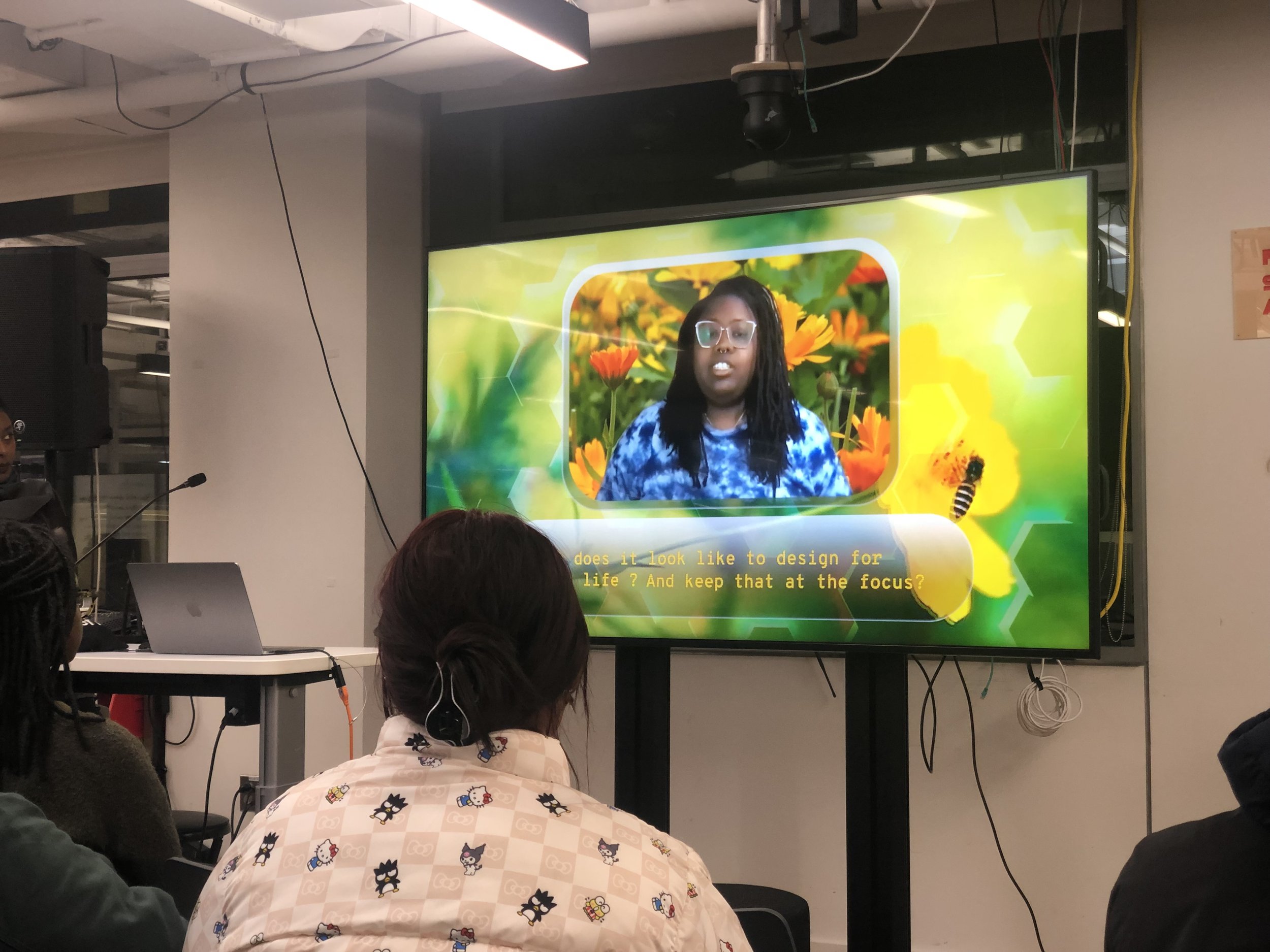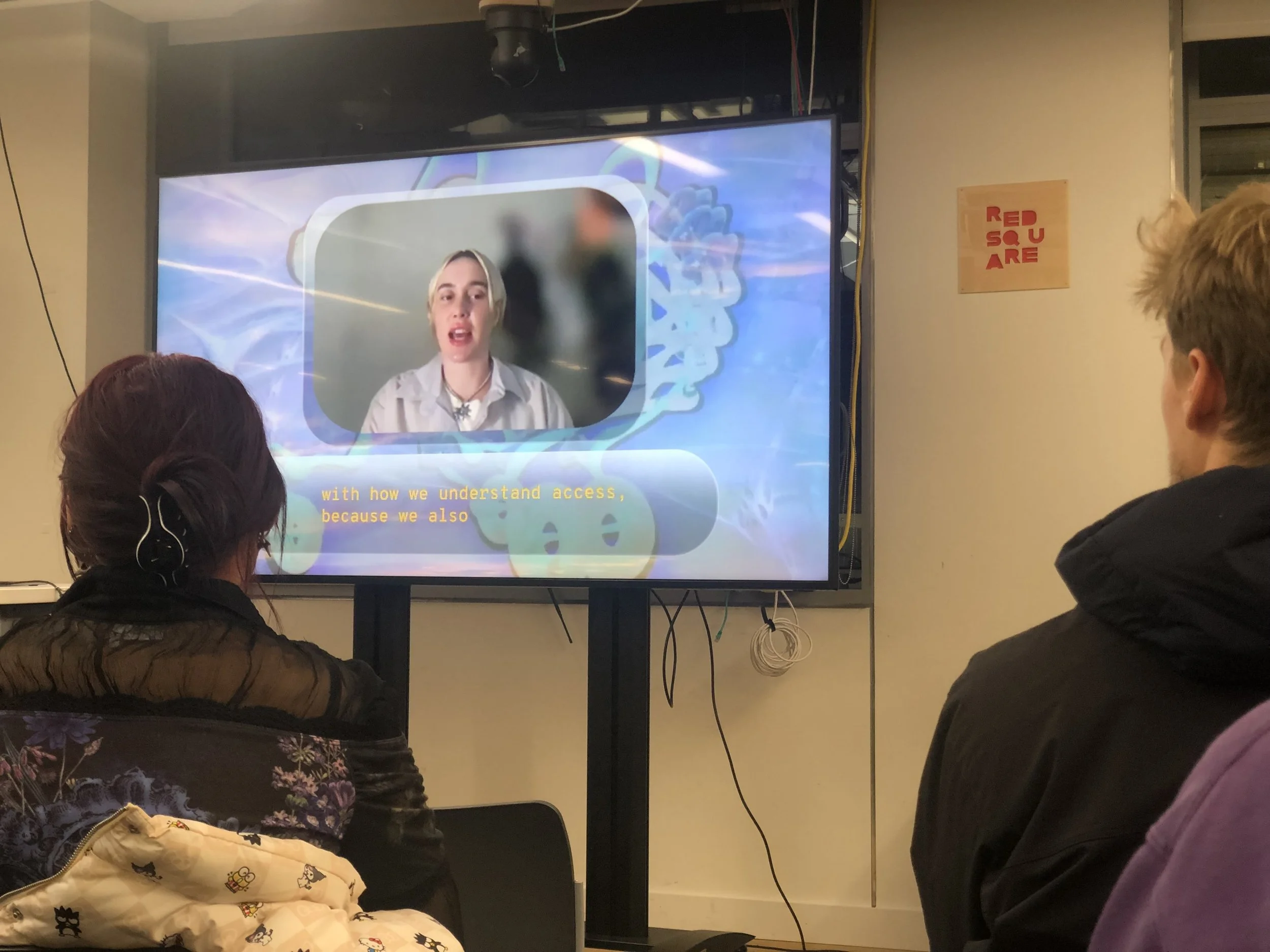Code and Canvas: The Processing Foundation 2023 Fellowship Showcase
Event Date:
December 1st, 2023
5:00 pm – 7:00 pm
Hosted by:
The Processing Foundation
Location:
NYU ITP/IMA
370 Jay Street
4th Floor
Brooklyn, NY
The Processing Foundation 2023 Fellowship Showcase was held at NYU ITP/IMA
Code and Canvas: The Processing Foundation 2023 Fellowship Showcase was the perfect opportunity to get immersed in the foundation’s efforts for diversity and inclusion in the world of code art — we bring you our highlights from the event so you learn more about Processing, get to know about the community projects, and feel inspired to maybe be one of the fellows next year!
The showcase was held last Friday at Tisch School of the Arts at New York University’s new Brooklyn campus for Interactive Media Arts (IMA) and Interactive Telecommunication Program (ITP). Hosted by Processing Foundation’s new Program Manager, Tsige Tafesse, the showcase highlighted the creative and innovative projects of the 2023 Processing Foundation Fellows.
The Processing Foundation 2023 Fellowship Showcase was held at NYU ITP/IMA
The evening was the perfect intersection of art and technology for students, artists, and programmers to engage with the fellowship artists, ask questions, and gain insights into their creative processes.
Zainab Aliyu, Joanne Amarisa with Mei Leong, Septia Nurmala, Echa Amalia, Arshi Saleh, and Larissa Serafina, Bobby Joe Smith III and Nat Decker, Kendra Krueger and Zahra Hassan, Nhan Phan, Kelly Chen and Olivia McKayla Ross, Liam Baum, and Stephanie T. Jones received financial support in the form of a Processing Foundation Fellowship Grant and worked on their projects throughout the year.
The Processing Foundation 2023 Fellowship Showcase was held at NYU ITP/IMA
Continuing with previous years, the foundation asked applicants to address at least one of five Priority Areas that feel especially important for technology and coding right now: Accessibility, Internationalization, Continuing Support, AI Ethics and Open Source, and Ecology and Environment. The Processing Foundation is also supporting Teaching Fellows, who develop teaching materials to be made available for free, and are oriented toward community learning.
From interactive installations to mesmerizing digital art, the fellows created projects that creatively address these issues.
The Processing Foundation 2023 Fellowship Showcase was held at NYU ITP/IMA
Kelly Chen and Olivia McKayla Ross were looking to combining creative coding with experimental theater, in order to challenge the notion of computer science education as the development of functions, products, and applications motivated by capital and privatization.
Kelly Chen on her project – The Processing Foundation 2023 Fellowship Showcase was held at NYU ITP/IMA
Joanne Amarisa worked with a dedicated team on ‘The Data Garden Project’ to create a growing resource and learning community for young women who want to build their first data visualization artworks using Processing and p5.js.
Joanne Amarisa on her project – The Processing Foundation 2023 Fellowship Showcase was held at NYU ITP/IMA
Stephanie T. Jones developed a website about the role of AI in replicating and producing Black death, and the potential use of AI in projects of Black Life. Building on the subject of inclusion and accessibility, Bobby Joe Smith III and Nat Decker worked towards the repository of curated citations, syllabi, practical/technical strategies, and educational material about access being made available on the Processing and p5.js website.
Stephanie T. Jones on her project – The Processing Foundation 2023 Fellowship Showcase was held at NYU ITP/IMA
Kendra Krueger and Zahra Hassan’s project emphasized developing an art-informed open-source teaching module for STEM that emphasizes non-extractive technologies. Similarly, Nhan Phan’s project focused on making this technology more available to Vietnamese coders — the club he created aims to teach artists, designers, and engineers how to use programming for their creative pursuits, enabling them to create impactful designs for the local environment.
Nhan Phan on his project – The Processing Foundation 2023 Fellowship Showcase was held at NYU ITP/IMA
The Processing Foundation provided support for sound-centered projects, as well. Zainab Aliyu developed a computationally generated ensemble composed from 80+ anthems, protests, hymns and freedom songs from the diaspora to recognize and archive African beats. Liam Baum created a curriculum aims to teach about both computer science concepts and musical characteristics, using each area as a tool to understand the other.
Zainab Aliyu on her project – The Processing Foundation 2023 Fellowship Showcase was held at NYU ITP/IMA
You can find out more about their projects in their own words on Processing Foundation’s YouTube channel.
Processing Foundation’s mission is to promote software literacy within the visual arts, and visual literacy within technology-related fields — and to make these fields accessible to diverse communities.
The Processing Foundation 2023 Fellowship Showcase was held at NYU ITP/IMA
Processing Foundation is committed to diversity in its programming and in nurturing a community culture and environment that is reflective of the diversity of the US as well as the global community networks they operate within. They aspire to create a climate where diversity is an asset for creativity and innovation.
Liam Baum on his project – The Processing Foundation 2023 Fellowship Showcase was held at NYU ITP/IMA
They strongly encourage applicants representing a range of differences that include — but are not limited to — age, national origin, ethnicity, race, religion, ability, sexual orientation, gender and sexual identity. Processing considers all qualified applicants with criminal histories in a manner consistent with the requirements of the San Francisco Fair Chance Ordinance and New York City Fair Chance Act.
If you’re interested in applying to become a fellow of The Processing Foundation, we encourage you to attend their in-person events like this one to learn more about their ongoing projects, engage in discussions, and network with the Processing community.
Read next:
Nat Decker on their project – The Processing Foundation 2023 Fellowship Showcase was held at NYU ITP/IMA


